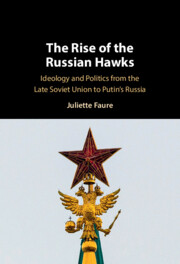This article explores the role of ideology in shaping Russia’s foreign and security policies, addressing whether it serves as a genuine guiding principle for the ruling elite or merely functions as a strategic tool to legitimise authoritarian rule and challenge the international order. Rather than focusing solely on Vladimir Putin, this study highlights the plurality of elite groups engaged in the production and contestation of strategic ideas. It highlights two key dimensions of ideology’s influence: first, its structural role in shaping elite networks and defining their internal power struggles, particularly among hawkish groups seeking policy influence; second, its instrumental function as a resource exchanged between ideological actors and policymakers, where ruling elites actively promote or demote ideological groups to justify strategic shifts in foreign and security policy. By analysing both the bottom-up diffusion of ideological narratives and the top-down mechanisms of state sponsorship, this research advances a nuanced understanding of how ideology interacts with domestic power dynamics, social environments, and international constraints to shape policy outcomes.

